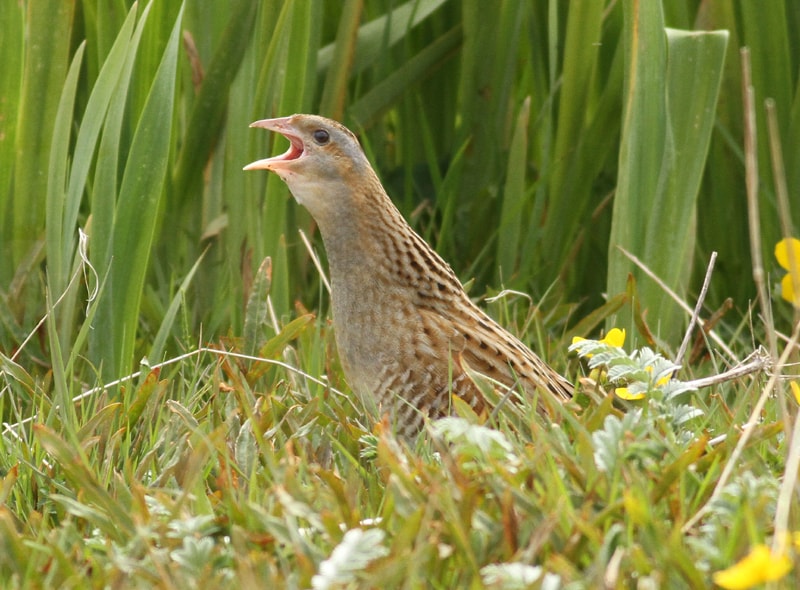Bleak outlook for Scottish Corncrakes
The 2019 survey results for Scottish Corncrakes have revealed that only 870 territorial males were recorded in the core areas that are annually surveyed this summer, down slightly from 897 in 2018.
The alarmingly low figure means that, in the last five years since the 2014 high of 1,282 singing males, the population has decreased by more than 30 per cent. While numbers in the Outer Hebrides increased in 2019 compared to 2018, this has been offset by declines elsewhere, such as across the Inner Hebrides, in the same period.

The Scottish population of Corncrake has declined by some 30 per cent since 2014 (Steven Fryer).
The persistent low numbers over the last five years show that Corncrakes are struggling to recover, with their long-term survival as a breeding species in Scotland under threat. At the moment, Corncrakes are helped largely through agri-environment schemes, where farmers and crofters are paid to ensure that there is good habitat for the birds.
The continuation of such agri-environment support for Scotland's farmers and crofters is vital to ensure Corncrake’s survival in Scotland, and also benefits other species.
RSPB Scotland is developing a new project to help secure the birds' future in Scotland. Saving Corncrakes through Advocacy, Land management and Education (SCALE) was awarded over £30,000 by the National Lottery Heritage Fund in August 2018 to further develop the project, ahead of applying for a full grant later this year.
If the application is successful, SCALE will focus on three key areas. Firstly, advocating for government agri-environment schemes which are better for biodiverse wildlife including Corncrakes; secondly, supporting crofters and farmers with funding, advice and practical support to farm in Corncrake friendly ways; and thirdly raising local and national awareness of these elusive birds through local events, ecotourism support, web pages, social media campaigns, films and podcasts and a touring exhibition.
Chris Bailey, Advisory Manager at RSPB Scotland, said: "The call of a male Corncrake used to be one of the sounds of summer across the UK and it's vital that it is not lost altogether from here. Corncrakes are a huge conservation priority in Scotland for RSPB Scotland, and for the Scottish Government under their Biodiversity Route Map.
"This year's results highlight the essential support agricultural communities on Scottish islands provide to this rare and secretive bird by managing their land in a Corncrake-friendly way – they are the stronghold for this species and the support they receive must continue over the long-term if we're to have a real chance at ensuring Corncrakes continue to breed in Scotland every summer.
"We hope that our SCALE project will be awarded the full grant to allow us to undertake such work to improve the fortunes of the species in the future."

